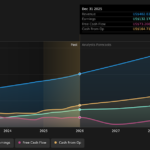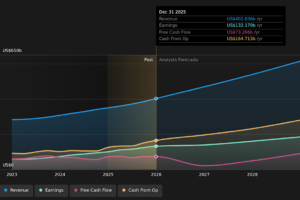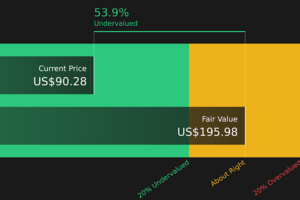
(Bloomberg) — Tencent Holdings Ltd. posted its slowest revenue gain on record, after a sweeping government crackdown and Chinese economic malaise obliterated growth at the internet behemoth.
Most Read from Bloomberg
Sales barely rose to 135.5 billion yuan ($20.1 billion) for the three months ended March, missing the average forecast, after online ad revenue plummeted 18%. Overall growth decelerated for a seventh straight quarter, to the slowest pace since the Shenzhen company went public in 2004.
China’s largest tech corporations from Tencent to Alibaba Group Holding Ltd. are resigning themselves to a new era of cautious expansion, more than a year after the start of Beijing’s campaign that eventually engulfed every internet sphere from e-commerce to gaming and fintech.
Net income slid 51% to 23.4 billion yuan, lagging estimates despite a big gain from the sale of stock in Singapore’s Sea Ltd. Shares in Prosus NV, Tencent’s largest shareholder, slid more than 3% in Europe.
Sentiment toward the industry has swung wildly in recent weeks, as investors debate whether the crackdown has run its course, or is at least switching to a more sustainable pace.
Click here for a liveblog on the earnings.
What Bloomberg Intelligence Says
2022 could mark Tencent’s second straight year of low single-digit EPS gains, putting its status as a China growth stock into question. Yet, 2H and 2023 may yet draw flames from Tencent’s glowing growth embers, particularly if consumer demand stabilizes, regulatory tightening eases, and gaming approvals resume.
– Marvin Chen and Sufianti Sufianti, analysts
Click here for the research.
Read more: Tencent, Alibaba Look Like Utilities After $1 Trillion Drubbing
Tencent has so far largely escaped direct scrutiny from Beijing, but not fallout from the broader clampdown and economic malaise. It’s shed roughly $500 billion of market value since its 2021 peak, even as the company studiously endorses Beijing’s efforts to curb excesses in its once free-wheeling internet sector.
On Tuesday, Chinese economy czar Liu He vowed support for digital platform companies and their public listings, after a symposium attended by firms including Baidu Inc. and NetEase Inc.
“On the one hand, our revenue and profit growth has slowed down; on the other hand, we can use it as a chance to shift gear toward higher-quality development,” founder Pony Ma wrote in Tencent’s social value report published this week, calling it the “difficult but right thing” to do.
Online advertising sales slid a worse-than-expected 18% after contracting for the first time in the December quarter. The business has been battered by China’s weakening economy and competition against TikTok-owner ByteDance Ltd., while big marketers of past years including online tutors and insurers tightened budgets after falling victim to separate regulatory crackdowns.
Tencent’s bread-and-butter gaming division — the world’s largest — also barely expanded revenue. It’s still on the waitlist for new monetization licenses, after regulators last month approved the first batch of domestic releases since July.
Given the new realities, executives said in March that international games, cloud software, and WeChat’s video accounts will be their major strategic foci. But overseas gaming sales expanded just 8% in constant currency terms, trailing the double-digit growth of previous periods, in part because of a tough comparison from a year earlier when the world was largely locked down.
“Like other companies operating outside of China, the post-Covid reopening dampener on games is real,” said Vey-Sern Ling, a senior analyst with Union Bancaire Privée. “Main takeaway is growth may be weaker for longer, at least until 2Q22, and then in the second half there is a chance for yoy comps to start looking better.”
Tencent’s fintech and cloud division has become its No. 1 revenue driver. But its 10% growth was also worse than expected after Covid lockdowns in cities like Shanghai and Shenzhen delayed cloud projects and cooled transactions.
For now, the WeChat messaging app is still the payment and smartphone backbone of Tencent’s sprawling online empire, and it’s only going to shoulder a bigger role for money-making to try and offset struggling businesses like streaming and domestic games. In April, Tencent shut its game streaming platform and hiked fees for its Netflix-style service for the second time in about a year, as short-video rivals keep luring away users and marketers.
Just like Mark Zuckerberg’s Meta Platforms Inc., Tencent is taking a leap into the virtual realm of the metaverse in the longer term. The Chinese company has revamped its aging social app QQ with customizable 3D avatars and Unreal Engine graphics, and is hiring developers to make open-world titles. But such endeavors, along with a steady pace of investment in overseas game studios, could pressure margins before they come to fruition.
“We expect Tencent’s earnings weakness to continue well into 1H2022E due to slowdown in online games and online advertising businesses,” Shifara Samsudeen, an analyst with LightStream Research, wrote in a note on Smartkarma before the results. “At this point, we don’t see many catalysts to drive a strong rally in Tencent’s share price.”
Most Read from Bloomberg Businessweek
©2022 Bloomberg L.P.













